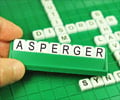Group therapy could be effective against obsessive compulsive disorder (OCD), Australian researchers say.
Group therapy is a practical and effective form of treatment for obsessive compulsive disorder (OCD), a new Australian study confirms.
Dr Rebecca Anderson through Curtin’s School of Psychology won her doctorate with her thesis entitled “Symptom Presentation and Treatment Of Obsessive-Compulsive Disorder: Understanding Case Complexity.”The study sought to address the limitations of individual therapy for OCD. She explained the rationale.
“Access to clinicians trained in methods known to be effective for treating OCD is recognised as limited due to both the lack of skilled clinicians and the time-intensive nature of standard individual therapy,” Dr Anderson said.
“As a mean of increasing access to skilled clinicians, I felt that it was significant to examine the efficacy of cognitive-behavioural therapy (CBT) where elements of cognitive therapy and exposure and response prevention are combined in a group mode.”
OCD is characterized by anxious thoughts or rituals, which the patient feels he or she cannot control. It strikes men and women in equal numbers and affects about 1 in every 50 people.
Dr Anderson’s research consisted of two linked studies involving 49 participants over a period of two years.
Advertisement
“While more participants receiving individual CBT met the recovered status post-treatment, after the one-month period these gains were not maintained,” Dr Anderson said.
Advertisement
OCD is a highly distressing and disabling disorder that can significantly impair one's occupational functioning, hinder the quality of one's leisure activities, and result in upheaval and disruption in a person's social relationships.
OCD patients may rely on relatives to offer them constant reassurance or may request that the family participate in their ritualistic behaviors to assure them that they indeed have completed a task or performed it correctly.
In order to alleviate a loved one's fear and anxiety, families may become overly involved in his/her avoidance behaviors, decision making and daily responsibilities, further fostering the dependence and insecurities that are characteristic of this disorder.
The coping skills group will help family members and significant others to clarify the dubious boundaries between a healthy therapeutic involvement and a maladaptive one which acts to reinforce the symptoms, says Dr Steven Phillipson, a US clinical psychologist.
Source-Medindia
GPL/C







